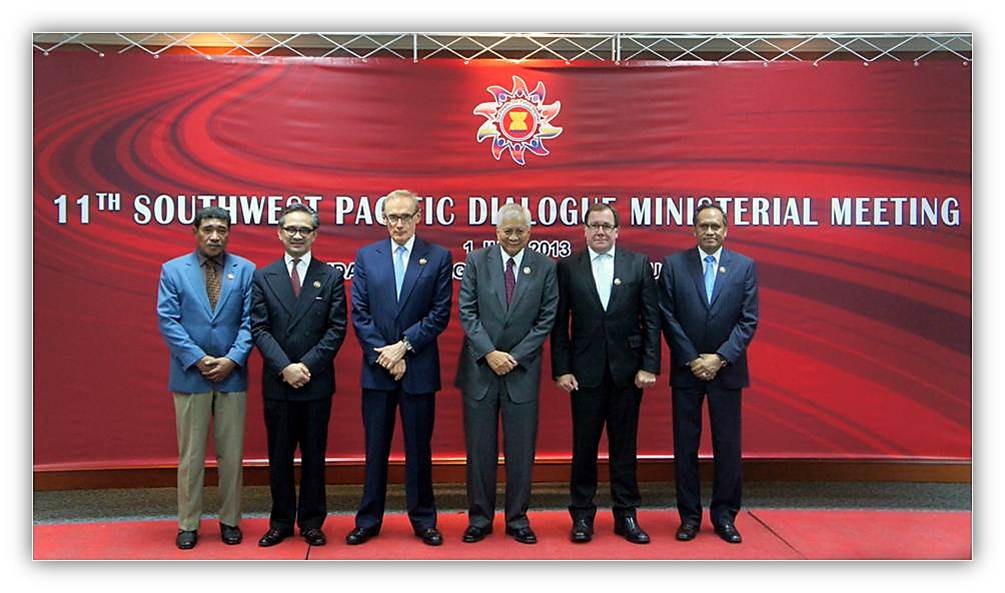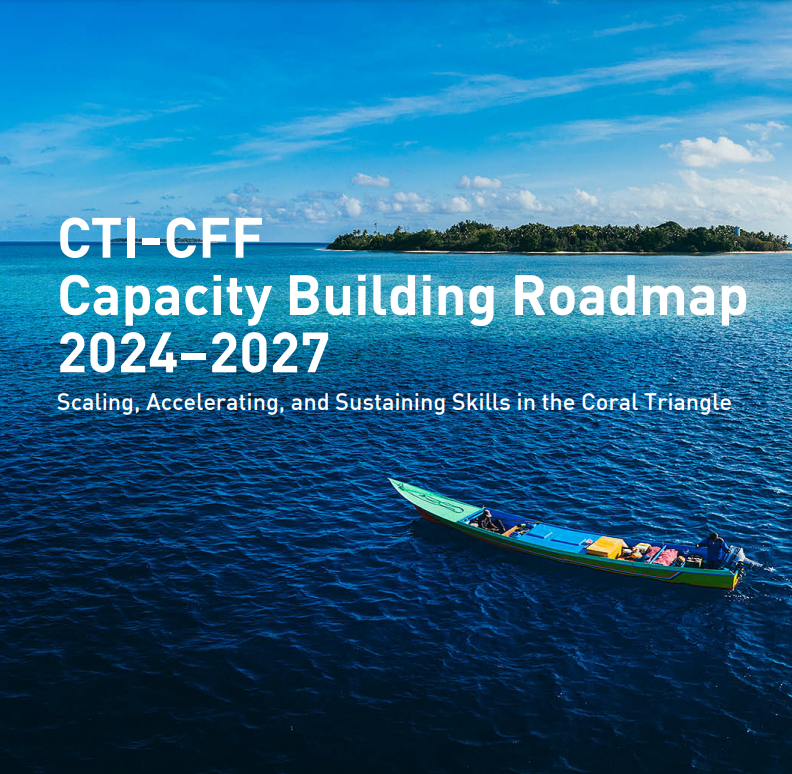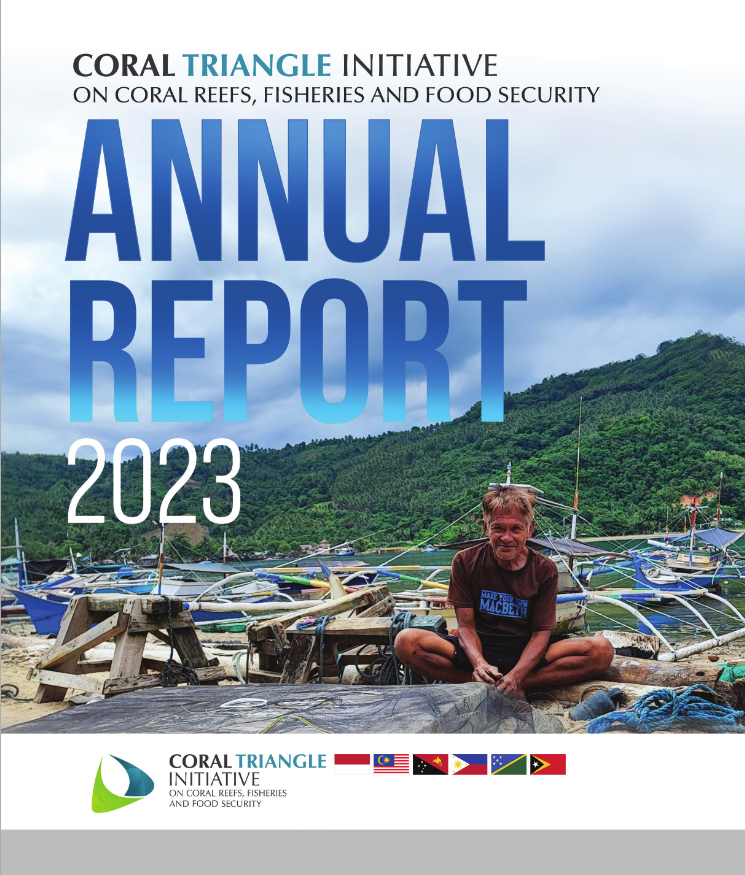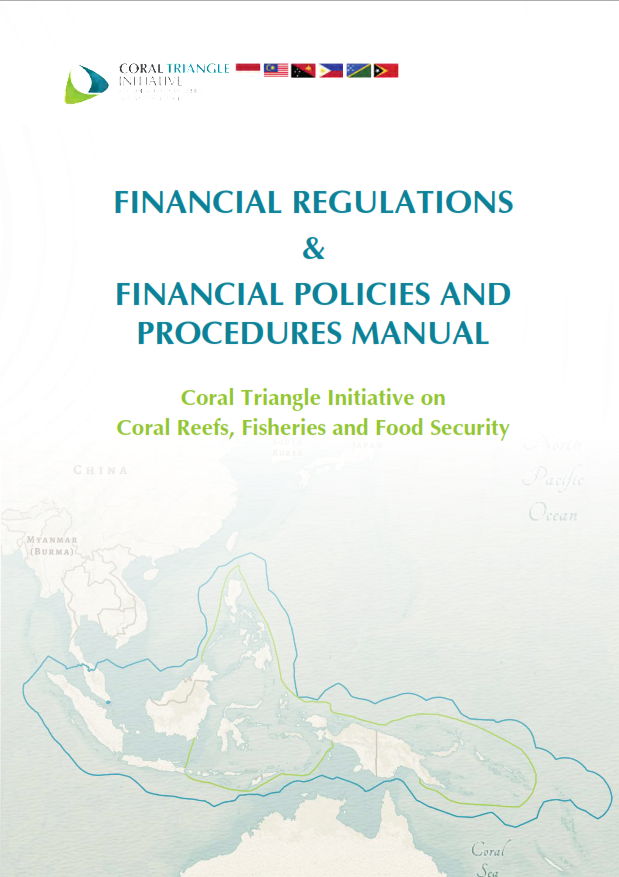Southwest Pacific Dialogue Endorses CTI-CFF
 The six member countries of the Southwest Pacific Dialogue (SwPD) endorsed the critical role of Coral Triangle Initiative on Coral Reefs, Fisheries and Food Security (CTI-CFF) in sustaining the region’s significant marine resources and ensuring the economic and well-being of its people.
The six member countries of the Southwest Pacific Dialogue (SwPD) endorsed the critical role of Coral Triangle Initiative on Coral Reefs, Fisheries and Food Security (CTI-CFF) in sustaining the region’s significant marine resources and ensuring the economic and well-being of its people.
The group made the endorsement in a Joint Media Statement released on July 1, 2013 at the sidelines of the 46th ASEAN Foreign Ministers’ Meeting in Brunei Darussalam.
In the statement, the SwPD through its foreign ministers, noted the “region’s potential for cooperation on marine ecotourism which would not only highlight the region’s biodiversity and natural heritage but also help protect the common marine environment of SwPD countries by providing local communities an environmentally sustainable livelihood and enhancing their role in marine cooperation and conservation.”
The group then expressed their “support for projects promoting marine ecotourism in the region, including those under the Coral Triangle Initiative on Coral Reefs, Fisheries and Food Security (CTI-CFF).”
The group also noted its concern over the serious impact of climate change on the region’s coral reefs and marine ecosystems and the CTI-CFF’s critical role in helping communities adapt to these threats. “Ministers agreed that immediate and collective action must be taken for the protection of coral reefs and other marine ecosystems for the continued economic development and well-being of the people. Ministers reiterated their support for the work of the CTI-CFF on protecting the marine ecosystem and sustainable livelihoods.”
The CTI-CFF, is a multilateral partnership formed in 2009 by the six Coral Triangle countries which include Indonesia, Malaysia, Papua New Guinea, Philippines, Solomon Islands and Timor-Leste. The initiative aims to safeguard marine and coastal resources in an area considered as the world’s epicenter of marine biodiversity. The initiative aims to accomplish its conservation and sustainability goals through regional national plans of action that specifically address biodiversity, fisheries and climate change issues.
The SwPD also welcomed the initiative to share information on maritime issues and agreed to make concerted efforts to conduct maritime surveillance in order to detect and deter illegal fishing activities in the sea. They recognized the need to increase cooperation efforts and capacities of SwPD countries to prevent illegal fishing activities and agreed to work together to combat illegal, unreported and unregulated fishing through strong support for the Regional Action Plan to Promote Responsible Fishing Practices including Combating Illegal, Unreported and Unregulated Fishing in South East Asia (RPOA-IUU) and accession to the United Nations Food and Agriculture Organization Agreement on Port State Measures to Prevent, Deter and Eliminate Illegal, Unreported and Unregulated Fishing.
This year’s 11th SwPD Ministerial Meeting was attended by Foreign Affairs Secretary Albert Del Rosario of the Philippines, Foreign Minister Bob Carr of Australia, Foreign Minister Marty Natelagawa of Indonesia, Foreign Minister Murray McCully of New Zealand, Foreign Minister Jose Luis Guterres of Timor-Lest, and High Commissioner Veali Vagi of Papua New Guinea.
SwPD Ministerial Meetings are held once a year with rotating hosts at the sidelines of the ASEAN Ministerial Meeting. Timor-Leste will host the next SwPD Ministering Meeting in Myanmar in 2014.
To read the full text of the statement, follow this link.
Photo Caption: SwPD Ministers from L-R - Foreign Minister Jose Luis Guterres of Timor-Leste, Foreign Minister Marty Natelagawa of Indonesia, Foreign Minister Murray McCully of New Zealand, Foreign Affairs Secretary Albert Del Rosario of the Philippines, Foreign Minister Bob Carr of Australia, and High Commissioner Veali Vagi of Papua New Guinea.
Credit: Philippine Department of Foreign Affairs



